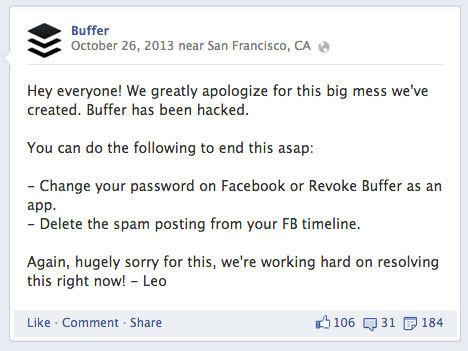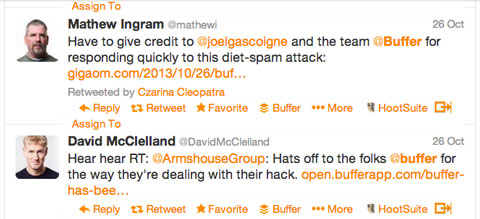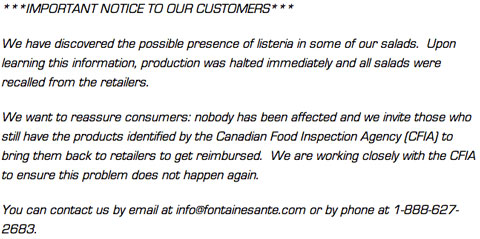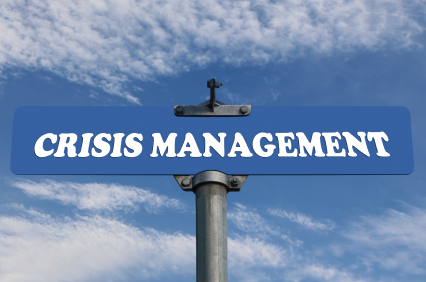 Does your brand have a crisis response plan in place?
Does your brand have a crisis response plan in place?
Do you know what tactics to use to defend your reputation online?
In this article, you'll discover three examples of reputation crisis response and seven steps for defending your own reputation online.
Why Reputation Matters
A global survey by Deloitte ranks reputation as executives' top strategic risk. The study found most reputation management programs don't support their business strategy well.
It's important to understand the way online conversations roll out.
Here are some key factors to consider:
- Anyone's voice in social media can be heard.
- Companies can have more difficulties than individuals in avoiding bad news.
- Due to online social and web search, kindred spirits can easily become aware of others who share their criticisms.
- Bad news travels faster and further than good news.
Keep these factors in mind as we explore three case studies of companies with major reputation management problems and how they handled them.
How Buffer Responded to Crisis
Buffer, the online social media scheduling site, was recently severely hacked.
Buffer became aware of the problem very rapidly and took immediate action to handle the problem. You can see a full account of their actions during the 24 hours immediately following the hack on their blog.
They were quick to inform their customers of the problem and explain what they were doing to fix it before most of their customers were even aware there'd been an attack. Here is just one of the messages they sent via Facebook.

Needless to say, if their customers had lost faith in Buffer's security and reliability, then a major erosion of their customer base would have taken place.

Because their response was timely and appropriate, they now have even more loyal customers.
How Fontaine Santé Responded to Crisis
Fontaine Santé Foods Inc. is a Montreal-based North American food company whose hallmark is quality ingredients and preservative-free, ready-to-eat produce.
Get World-Class Marketing Training — All Year Long!
Are you facing doubt, uncertainty, or overwhelm? The Social Media Marketing Society can help.
Each month, you’ll receive training from trusted marketing experts, covering everything from AI to organic social marketing. When you join, you’ll also get immediate access to:
- A library of 100+ marketing trainings
- A community of like-minded marketers
- Monthly online community meetups
- Relevant news and trends updates
In December 2011, they detected the possibility of Listeria monocytogenes in their prepackaged salads. The potentially contaminated salads had already been distributed and purchased by many consumers.
Not only did this present a potential social media crisis, but also the possibility of a major lawsuit. Major repercussions could've potentially destroyed the brand's long-lasting credibility and reputation.
Their crisis plan was simple, timely and effective.
Fontaine Santé utilized traditional media and their social media channels to spread the message about the possible contamination and make sure that all consumers were aware of the situation.
The brand posted the following well-written official response on their corporate website.

Thanks to their quick action, all potentially contaminated produce was quickly recalled with no reports of illness.
Because Fontaine Santé was open and honest about the possible contamination risk, their loyal customers rallied around to praise and defend the brand.
How J.C. Penney Responded to Crisis
In May 2013, J.C. Penney had what could be described as a tempest in a teapot that received international attention.

Discover Proven Marketing Strategies and Tips
Want to go even deeper with your marketing? Check out the Social Media Marketing Podcast! Publishing weekly since 2012, the Social Media Marketing Podcast helps you navigate the constantly changing marketing jungle, with expert interviews from marketing pros.
But don’t let the name fool you. This show is about a lot more than just social media marketing. With over 600 episodes and millions of downloads each year, this show has been a trusted source for marketers for well over a decade.
The Telegraph declared that J.C. Penney had a problem with its teapot as it was depicted in a huge billboard advertisement on Interstate 405 near Culver City, California. Some people saw the image as a subtle depiction of Hitler.

This is obviously a matter of personal perception and the result of an innocent creative mistake. The issue could've become a crisis unless J.C. Penney took very prompt action.
Because J.C. Penney's response was rapid and appropriate, a crisis was averted.
7 Steps to Defend Your Own Reputation
The case studies above provide you with useful examples to refer to as you develop your own reputation management strategy.
Before you begin to build a plan, you need to be sure that you maintain shared standards within your company. Shared standards give you the strongest basis for an effective crisis response strategy.
Your company's culture should emphasize the policies the company has developed for all aspects of its operations including:
- Quality standards
- Customer relations
- Human relations
- Safety standards
- Emergency responses
- Environmental concerns
- Privacy standards, etc.
Every member of your team should understand these policies and commit to them to put your company in the best possible state of readiness in the event a crisis develops.

#1: Act Quickly
Although it's tempting to hold back until you're sure you understand exactly what's happened and who's to blame (as your lawyers might counsel), those impacted by the crisis want answers fast. Better by far that your company provides those answers before anyone else.
#2: Take Charge
The attitude should be that your company will manage the crisis, rather than allowing it to control the company. There are risks associated with both being prompt and being tardy with your responses. Move as fast as possible, rather than waiting for more information to come in before you act.
#3: Handle Reality
It's important to deal with the real facts. Social media makes it easy for whistle-blowers to reveal the truth as they see it. ‘Fess up to what's really happening and don't attempt to maintain a charade that could collapse at any time.
#4: Engage the Nay-sayers
When you follow the previous steps, you can deal directly with any critics you have. Old-style PR often suggested laying low until the heat blew over. Because the Internet gives visibility to critics, it's much better to deal with criticism as it arises.
#5: Spread the Word
To avoid any misconceptions or incorrect interpretations by others, your company should use all means at its disposal to communicate what has happened and what you're doing about it. This includes using your website, company blog, social media pages and media releases.
#6: Encourage Dialogue
Any successful company will have defenders among its various stakeholders, including customers. Provide your supporters with an online space where they can express their views on what the company means to them and how they see the company's response.
By encouraging positive sources of information about your company, you ensure that good opinions can far outweigh any negative information that shows in searches.
#7: Deliver on Your Word
At the heart of any crisis, there's a real incident acting as a trigger. It's important that your company ensure there are appropriate responses to that incident, and that outsiders acknowledge your company as handling the situation well.
Over to You
Don't wait until the threat to your reputation becomes visible. Events in a crisis move quickly online and only by preparing can you successfully defend your company's reputation.
Use the examples and strategic tips in this article to help you build a plan that prepares you to withstand a crisis.
What do you think? Has your brand had to defend its reputation online? What strategic tactics did you use? What other advice can you offer? Please share your opinions in the comments below.
Attention Agency Owners, Brand Marketers, and Consultants

Introducing the Marketing Agency Show–our newest podcast designed to explore the struggles of agency marketers.
Join show host and agency owner, Brooke Sellas, as she interviews agency marketers and digs deep into their biggest challenges. Explore topics like navigating rough economic times, leveraging AI, service diversification, client acquisition, and much more.
Just pull up your favorite podcast app, search for Marketing Agency Show and start listening. Or click the button below for more information.

